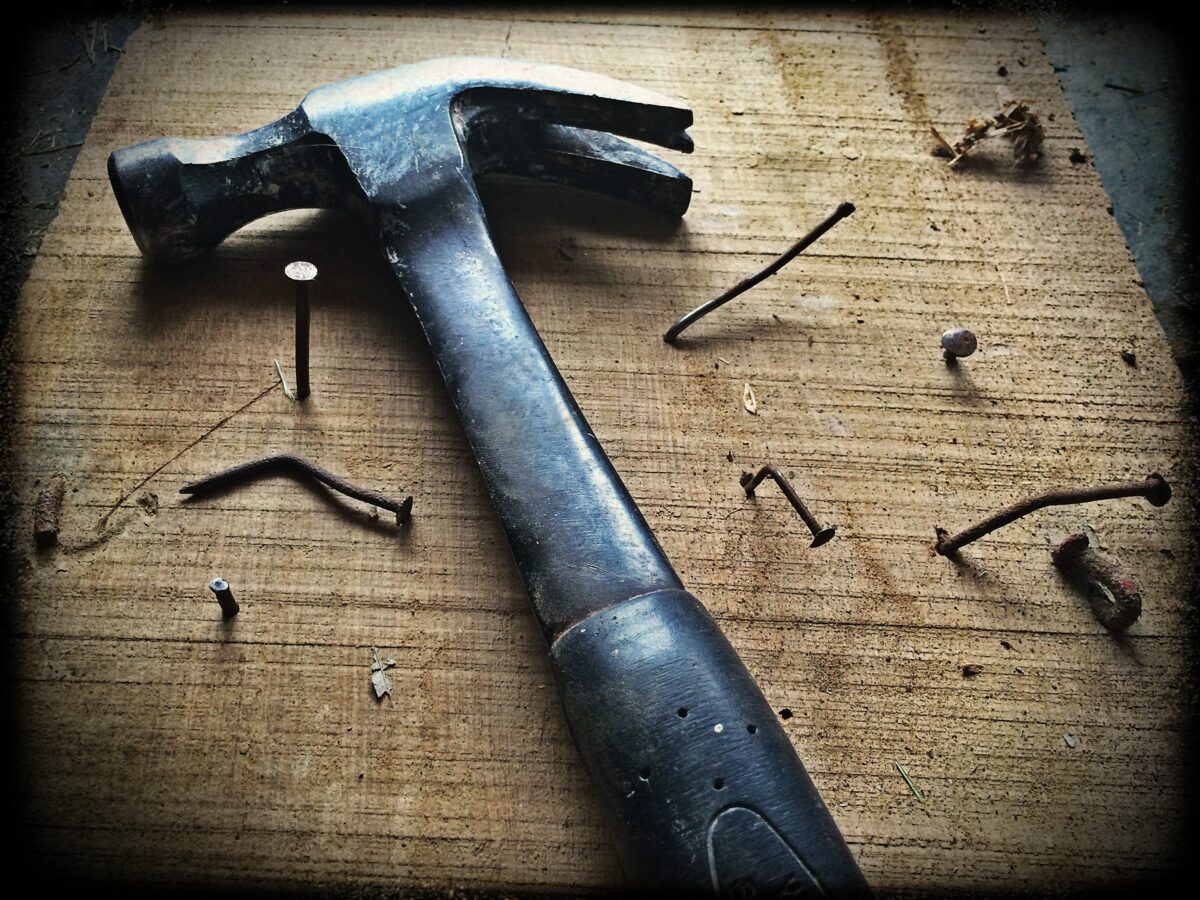I am not the handiest person in the world. In fact, my toolbox only has three tools in it, being a phone, a pen, and a cheque book. For this reason, I may not be the best person to be writing about hammers and nails. But I will anyway because I really want to use one of my favourite quotes.
Abraham Maslow wrote, “If the only tool you have is a hammer, it is tempting to treat everything as if it were a nail.”
I used to use that quote to explain why litigators were not the best people to resolve family business disputes. Too often litigators would use their single tool (a lawsuit) to resolve an issue which ideally would be resolved with a bit more finesse. The type of finesse which only a brilliant corporate lawyer like me could bring to the situation.
Actually, picking on litigators was a bit of a sport for me back in the day. A rather dangerous sport if you think about it. I used to have a table in my office on which I had a chess set. When a litigator came in for a meeting, I would remove the chess pieces, put on checkers, and tell them that the difference between litigators and corporate lawyers was like the difference between chess and checkers, the corporate lawyers, of course, being the ones playing chess. (And you wonder why I had to retire.)
Now, it is quite possible that I was being too tough on the litigators and just a tiny bit over-impressed with my own skill set. Be that as it may, my basic point is correct. To be an effective lawyer you cannot be a one-trick pony.
In my first year of practice, there was a litigator in my office who was highly intelligent, but somewhat afraid of going to court. Sometimes instead of saying “see you in court” when the situation called for it, he would instead say “see you in the boardroom,” which does not have quite the same ring to it. He was great until the other side figured it out. Then he was useless.
I have also come across lawyers who were skilled at working with people to resolve matters in a collaborative manner. They would obtain excellent results when up against other reasonable people. When dealing with gladiators they would get crushed. Then stomped on.
At the opposite extreme were lawyers who were very intimidating. Against the right opponent they would also be successful. One fellow who I worked with got a great result for my client by threatening opposing counsel with “global thermo-nuclear war” which he explained involved suing both the opposing party and his lawyer. He tried the same aggressive approach in a dispute with the Canada Revenue Agency which did not work out nearly as well for him or his client.
I always thought that lawyers have to have the ability to adapt their approach to the situation. I had some clients who thought that I was the meanest son of a bitch in the valley and perhaps was not the best choice where a soft touch was required, and others who expressed that they were hesitant to hire me for a particular matter because they did not know if I could be tough enough. That is when I learned that unless you tell your clients what you are capable of, they will pigeon-hole you based on the type of work that you have done for them in the past.
My point? Effective lawyers need to have diverse skills and know when to use them. Since few of us can be all things for all people, good lawyers also know when to call for help.
